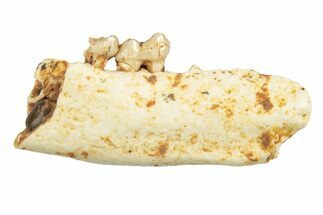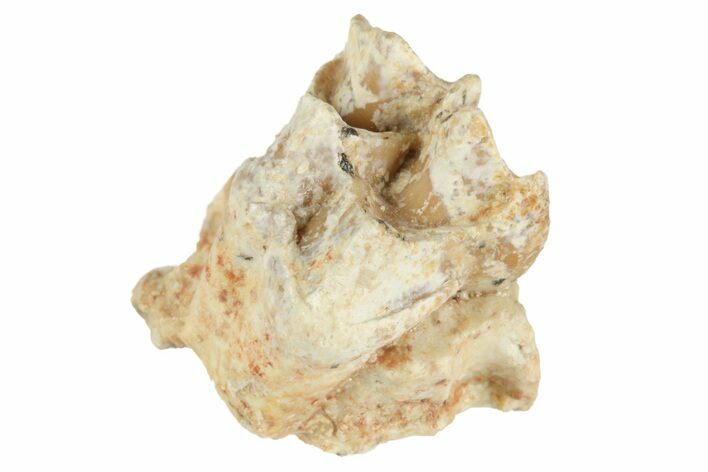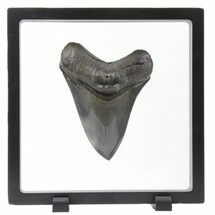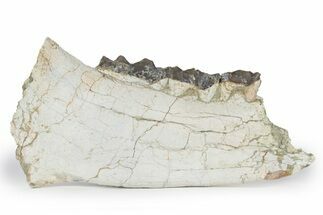This Specimen has been sold.
.59" Fossil Early Ungulate (Bachitherium) Tooth - France
This is a .59" wide tooth from an Oligocene ungulate (Bachitherium). There is fossilized bone material still attached to the root. Comes with an acrylic display case.
Bachitherium was a gazelle-sized herbivorous mammal that lived in what is now Europe from the late Oligocene to the early Eocene periods. It was an artiodactyl ungulate, related to modern deer, camels, giraffes, and bison. It had long legs and was built for grazing. It was an early ruminant, meaning that it possibly digested plant matter in multiple stomachs using microbial activity.
The Artiodactyls are a group of mammals often called "even-toed" ungulates. They are called such because modern members of the group support their bodies on enhanced third and fourth digits (fingers), ending in hooves. Their first, second, and fifth digits are often reduced or nonexistent in modern species, however many extinct and fossil species retain five-toed feet. All artiodactyls, with the exception of whales and their ancestors, are herbivorous.
SPECIES
Bachitherium sp.
LOCATION
Lot (Formerly Quercy), France
FORMATION
Quercy Phosphorites Formation
SIZE
.59" Wide
CATEGORY
ITEM
#218520
We guarantee the authenticity of all of our specimens.
 Reviews
Reviews











